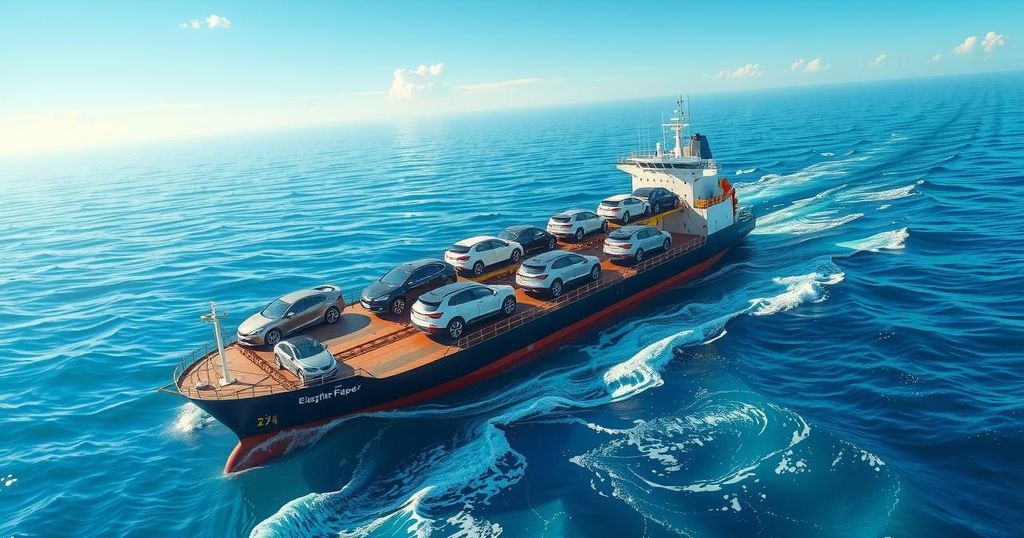BYD’s Expansion in Brazil Faces Challenges Amid Rising Tariff Demands

BYD faces challenges in Brazil as local automakers call for tariff hikes to limit its growth. A shipment of over 7,000 vehicles is en route from China, heightening concerns about market saturation and potential oversupply.
BYD, the prominent Chinese electric vehicle manufacturer, is facing significant hurdles in its expansion into the Brazilian market. The company, eager to solidify its presence, is encountering heightened pressure from competing car manufacturers in Brazil. These domestic rivals are increasingly calling for a raise in tariffs in an attempt to restrict BYD’s growth and manage the potential oversupply of its vehicles in the local market.
In late April, a car carrier loaded with over 7,000 BYD vehicles departed from Jiangsu province, China, becoming a pivotal milestone in the company’s ambitious plans. According to reports from Chinese state media, this shipment is expected to arrive at the Port of Itajai in Santa Catarina, Brazil, in about one month. This significant transport reflects BYD’s intent to ramp up its operations and sales.
However, this arrival coincides with rising concerns from established automakers in Brazil, who fear that an influx of BYD cars could saturate the market, undermining their competitiveness. To stave off this threat, these companies are urging the Brazilian government to increase tariffs on imported vehicles, particularly those from China.
Further complicating the situation, there are discussions among Brazilian automotive sector stakeholders to introduce additional protections for local manufacturers. Such initiatives may lead to implementation of new measures that could shield domestic producers while attempting to balance the burgeoning electric vehicle demand in the region.
Nevertheless, the Brazilian market represents a significant opportunity for BYD, as the government pushes for more electric vehicle adoption due to environmental considerations. The tension hovers over whether local competition can successfully dampen BYD’s expansion plans, or whether the newcomer can adequately respond to these challenges while still promoting electric vehicle options in Brazil.
In summary, BYD’s entry into Brazil is being met with resistance from local automakers who are advocating for higher tariffs to mitigate the influx of Chinese vehicles. The company’s recent shipment highlights its intent to capitalize on opportunities in the electric vehicle sector. However, the outcome of these tariff discussions will likely determine the future landscape of the automotive market in Brazil, as well as BYD’s strategic objectives within it.
Original Source: asia.nikkei.com





